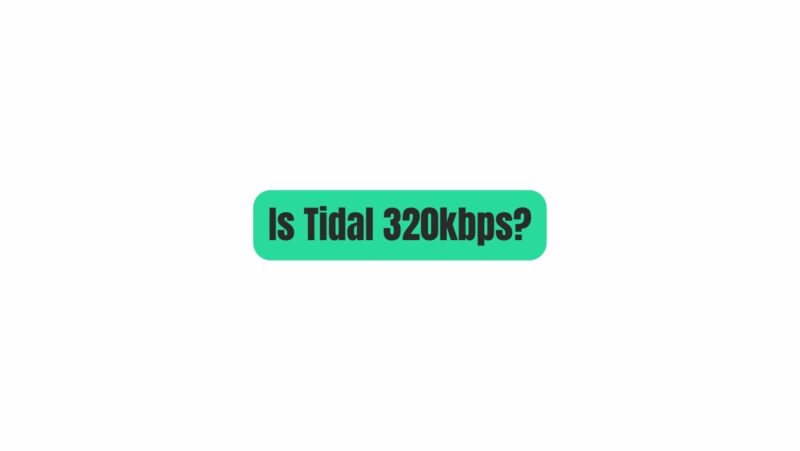Tidal is a music streaming service renowned for its commitment to high-quality audio. One of the features that sets Tidal apart from many other streaming platforms is its claim to provide music at a bitrate of 320kbps, which is widely considered to be equivalent to CD quality. In this comprehensive article, we will delve into Tidal’s streaming quality, explore what 320kbps means, and discuss the factors that impact the actual audio quality you experience when using Tidal.
Understanding Bitrate and Audio Quality:
Bitrate is a measure of the amount of data transmitted per second in a digital audio file. In the context of music streaming, a higher bitrate generally results in better audio quality. Bitrate is usually measured in kilobits per second (kbps), and it directly affects the level of detail and fidelity in the audio.
Tidal’s Claimed Streaming Quality:
Tidal has claimed to offer a streaming quality of 320kbps, which is often referred to as “HiFi” quality on the platform. This bitrate is considered to be equivalent to CD quality (16-bit/44.1kHz), which is known for its high fidelity and accurate audio reproduction.
Lossy vs. Lossless Compression:
To achieve a bitrate of 320kbps, streaming services typically employ compression techniques. However, there are two primary types of compression: lossy and lossless.
- Lossy Compression: Lossy compression reduces file sizes by removing some audio data that is considered less perceptible to the human ear. Services like Spotify often use lossy compression, which can result in smaller file sizes but may sacrifice some audio quality.
- Lossless Compression: Lossless compression reduces file sizes without discarding any audio data, ensuring that the original audio quality is preserved. Tidal, in its HiFi tier, uses lossless compression to deliver CD-quality audio.
Tidal’s HiFi Quality Explained:
Tidal’s HiFi tier offers streaming at 1411kbps, which is equivalent to CD quality. This is achieved through lossless FLAC (Free Lossless Audio Codec) compression. However, Tidal’s desktop and mobile apps often provide the option to adjust streaming quality, including a setting that reduces the bitrate to 320kbps AAC (Advanced Audio Coding) for users with limited bandwidth or storage space.
In practical terms, if you subscribe to Tidal’s HiFi tier and use the default settings, you are indeed streaming music at a bitrate of 1411kbps, which is CD quality. However, if you opt for the 320kbps setting, you are still enjoying high-quality audio but at a lower bitrate, which is still significantly better than many other streaming services.
Factors Affecting Audio Quality:
While Tidal’s streaming quality is generally excellent, several factors can affect the actual audio quality you experience:
- Audio Equipment: The quality of your headphones or speakers plays a significant role in how you perceive audio quality. High-quality equipment can reveal more details in the music.
- Network Connection: A stable and fast internet connection is essential for streaming high-quality audio without interruptions or buffering.
- Source Material: The source material, such as the recording and mastering of the music, can influence the perceived audio quality. Well-recorded and mastered tracks will sound better regardless of the streaming bitrate.
- Listening Environment: The acoustics of your listening environment and background noise can impact your perception of audio quality.
Conclusion:
Tidal’s claim of offering 320kbps streaming quality is accurate but may require some context. While the default setting for Tidal’s HiFi tier provides CD-quality audio at 1411kbps, the platform also offers a 320kbps setting that still delivers high-quality sound. Ultimately, the choice between these settings depends on your available bandwidth, storage space, and personal preference. Regardless of the setting you choose, Tidal remains a top choice for audiophiles and music enthusiasts seeking high-fidelity audio streaming.


